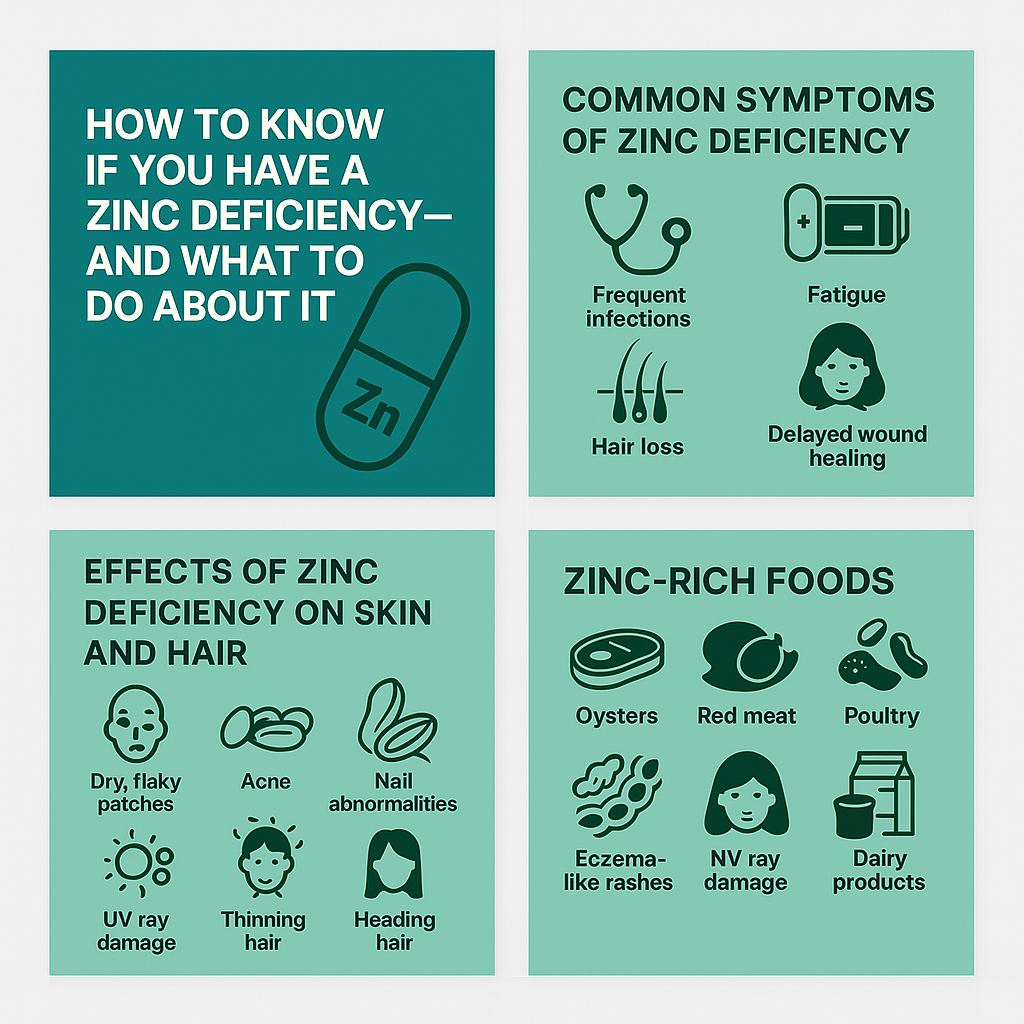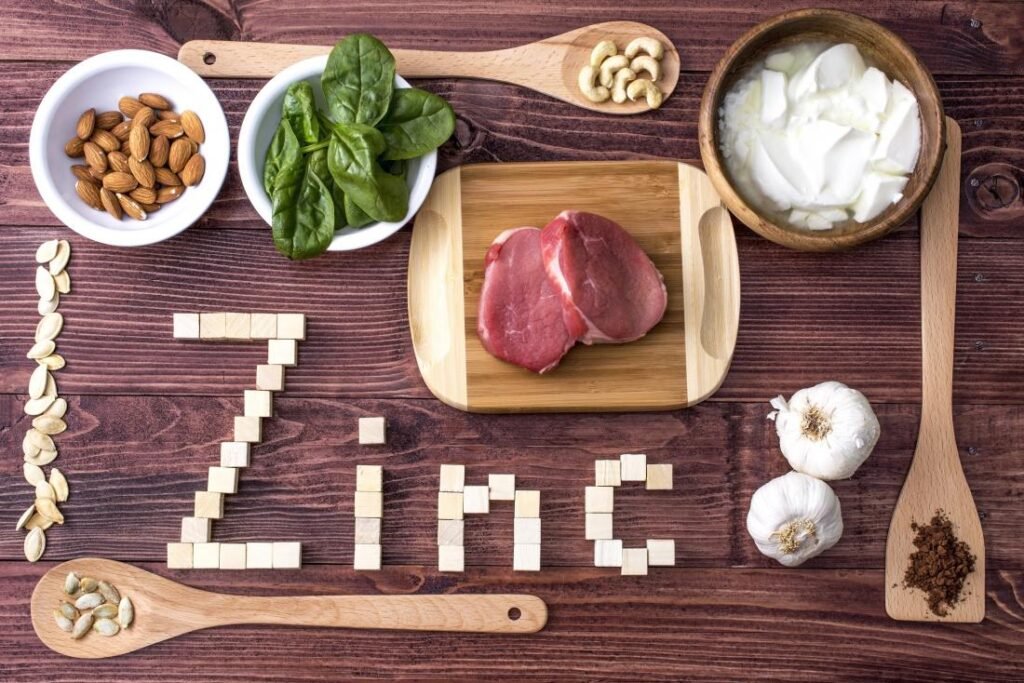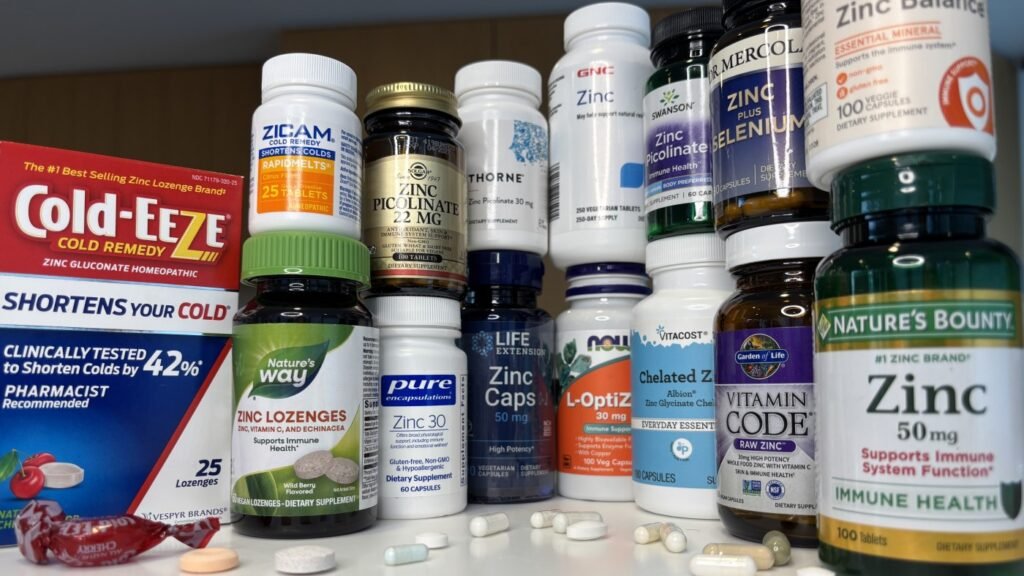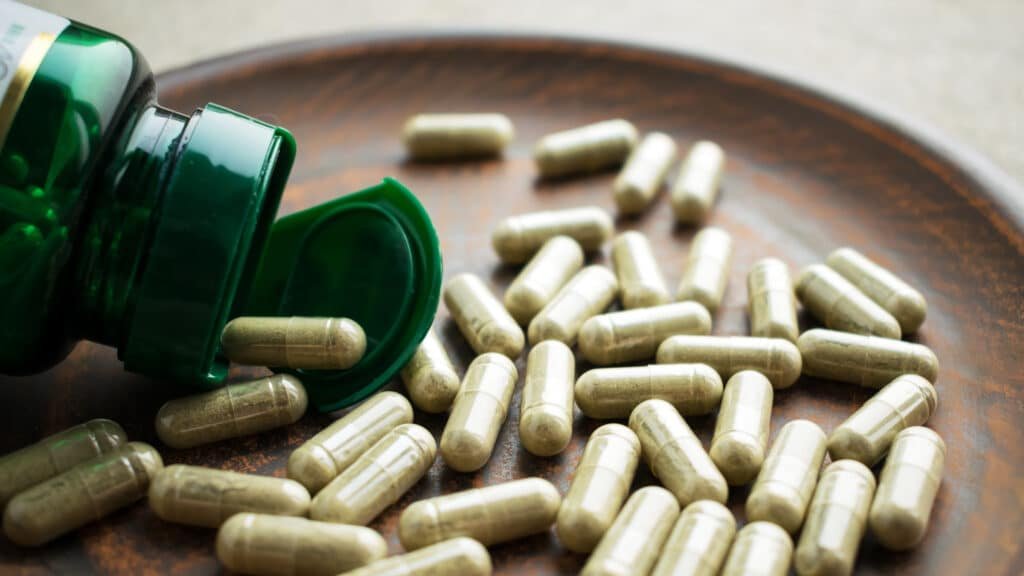Zinc deficiency symptoms can sneak up on you—unlike vitamin D or B12, which tend to get all the attention. But overlooking zinc could cost you more than just energy levels. From weakened immunity to hair loss and delayed healing, zinc is a critical mineral your body can’t afford to miss. The twist? Your body doesn’t make or store it. So you have to get it daily, and most people don’t even know they’re falling short.
In this in-depth guide, we’ll cover everything you need to know about zinc: what it does, how to know if you’re deficient, how it affects your skin, hair and libido, and what to do about it if your levels are low. We’ve asked expert UK-based nutritionists and medical professionals to give us the full picture—plus tips on how to correct it with diet or the right supplements.
What Is Zinc and Why It Matters
Zinc is an essential trace mineral responsible for supporting more than 300 enzymes in the human body, which means its deficiency can lead to significant health challenges. It contributes to:
- Immune system health
- Wound healing and tissue repair
- DNA and protein synthesis
- Cell division and growth
- Metabolism regulation
- Taste and smell perception
Dr Gina Schoeman, aesthetic doctor at CREO Clinic in London, explains:
“Zinc is vital for immune function, protein synthesis, wound healing, DNA synthesis, and cell division. Our bodies cannot store zinc, so we must obtain it regularly through our diet.”
Unlike fat-soluble nutrients, your body doesn’t have a “zinc reserve.” This makes daily intake crucial—miss a few days and the effects begin to show.

Common Signs and Symptoms of Zinc Deficiency
Zinc deficiency is more common than you might expect, especially among people with restricted diets, chronic stress, or high alcohol intake. Symptoms are often subtle but progressively damaging, highlighting the importance of monitoring zinc deficiency closely:
- Frequent colds or infections
- Fatigue and low energy
- Delayed wound healing
- Loss of appetite
- Hair thinning or loss
- Dry skin or acne
- Reduced sense of taste and smell
- White spots on fingernails
- Mood swings, irritability or depression
“Identifying a zinc deficiency can be tricky since symptoms can be vague and overlap with other nutritional deficiencies,” says Dr Schoeman. “However, if you experience fatigue, frequent infections or delayed wound healing, it might be worth checking your zinc levels.”
In children, zinc deficiency can also cause growth delays and weakened immunity.

How Zinc Deficiency Affects Skin, Hair and Nails
Zinc is a top performer in skin integrity and tissue renewal. Nutrition expert Rachel Clarkson notes that a lack of this mineral can severely impact skincare efforts:
“Zinc deficiency can cause dry, flaky skin, nail abnormalities, acne breakouts, and even eczema-like rashes. Cuts and scrapes may also take longer to heal.”

Dr Schoeman adds that zinc deficiency is one of the most overlooked causes of female hair thinning:
“It plays a role in hair tissue growth and repair, and adequate levels help prevent hair loss. Zinc deficiency is often linked to thinning, particularly in women.”
It even helps shield your skin from UV damage and supports post-sun repair. So if your skincare routine isn’t delivering results—it might be your zinc intake that’s off.
Zinc’s Role in Sexual and Reproductive Health
Zinc is a heavy hitter when it comes to sexual health and fertility—for both men and women. Its deficiency could disrupt delicate hormonal balances, affecting overall health significantly.
According to Harley Street nutritionist Clarissa Lenherr:
“Zinc is crucial for the production of testosterone, the primary male sex hormone. Low levels are linked to reduced libido and sexual performance. It’s also essential for spermatogenesis—maintaining sperm motility and quality.”
In women, zinc supports hormone regulation and egg health. It plays a subtle but powerful role in reproductive balance, especially during pregnancy, menstruation, and hormonal fluctuations.

What Causes Zinc Deficiency?
Zinc deficiency can be caused by several factors, and understanding them is crucial to addressing the issue:
- Poor diet – Lacking zinc-rich foods like meat, shellfish, seeds, and whole grains
- Vegetarian or vegan diets – Plant-based zinc is harder to absorb
- High sugar intake – Reduces zinc bioavailability
- Alcoholism – Interferes with zinc absorption and increases urinary excretion
- Digestive disorders – Conditions like Crohn’s disease, IBS or coeliac disease impair absorption
- Excessive sweating – Athletes and those in hot climates may lose zinc faster
- Pregnancy and breastfeeding – Higher demands not always met by diet alone
Even regular stress and overtraining can reduce your zinc levels subtly over time.
How to Test Your Zinc Levels
To confirm a deficiency, the best way is through a serum plasma zinc test conducted by your GP or private clinic. Addressing zinc deficiency starts with accurate diagnosis.
Other ways include:
- Hair mineral analysis – Indicates long-term deficiency, although less reliable
- Functional tests – Indirect markers like low alkaline phosphatase levels or white blood cell count
- Taste tests – Zinc taste tests can indicate potential deficiency but aren’t highly accurate

How to Increase Zinc Levels Through Diet
Start with your plate. Dr Schoeman recommends focusing on dietary changes to mitigate zinc deficiency:
Top zinc-rich foods (by content per 100g):
| Food | Zinc (mg) |
|---|---|
| Oysters (wild) | 60 mg |
| Beef (lean) | 12.3 mg |
| Pumpkin seeds | 10.3 mg |
| Lamb | 6.7 mg |
| Cashews | 5.6 mg |
| Chickpeas (cooked) | 1.5 mg |
| Fortified cereals | 3.8 mg |
| Yoghurt | 1.0 mg |



